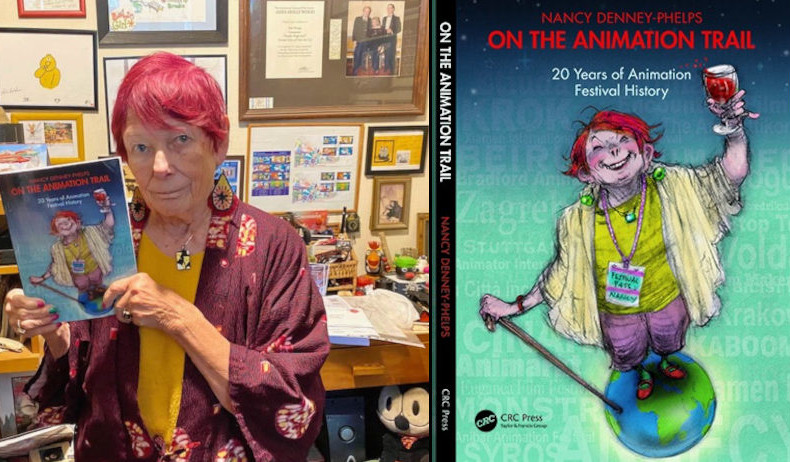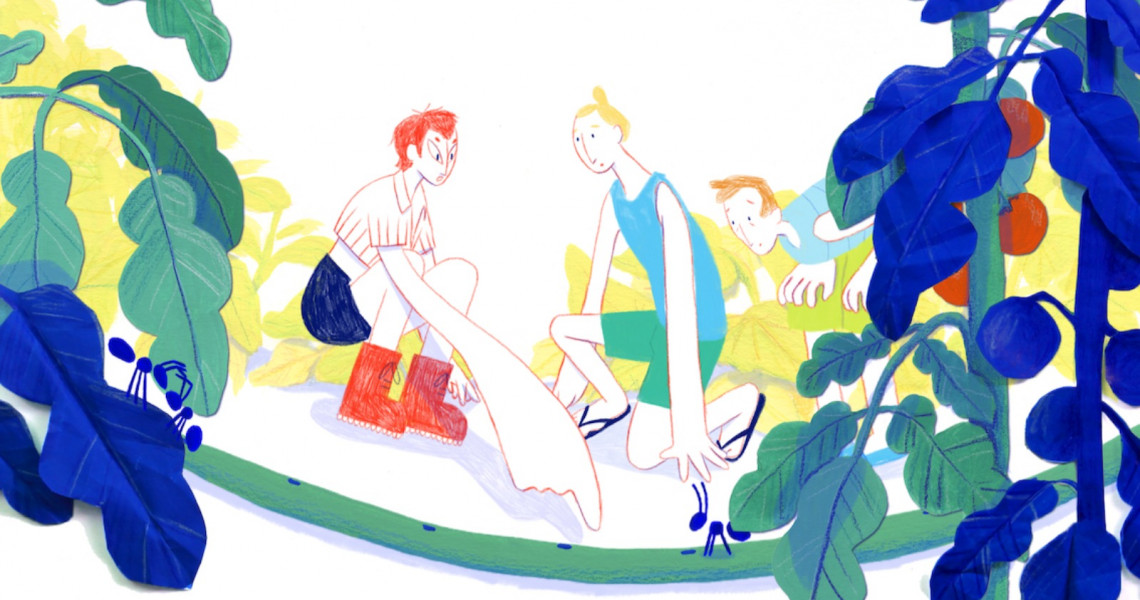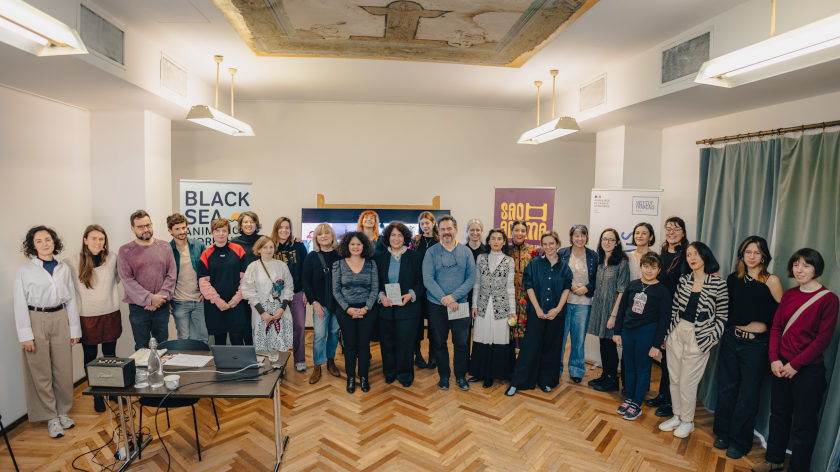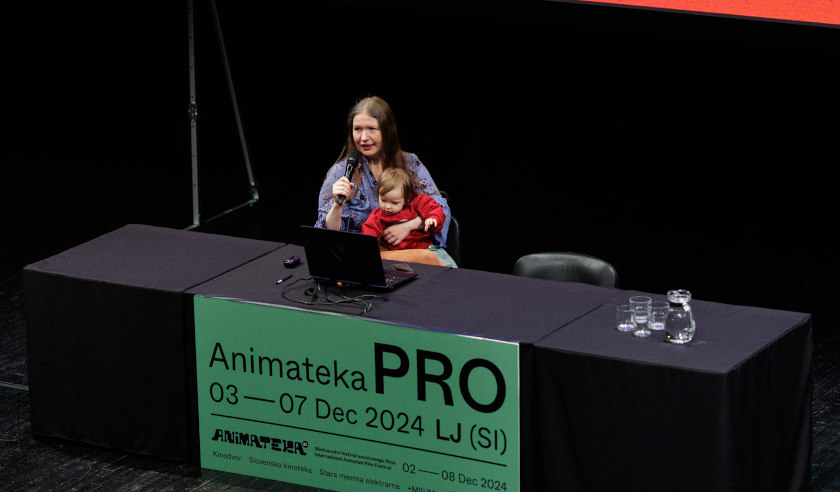Sisterhood in the Times of Chaos: Report from Tricky Women/Tricky Realities Animation Festival 2022
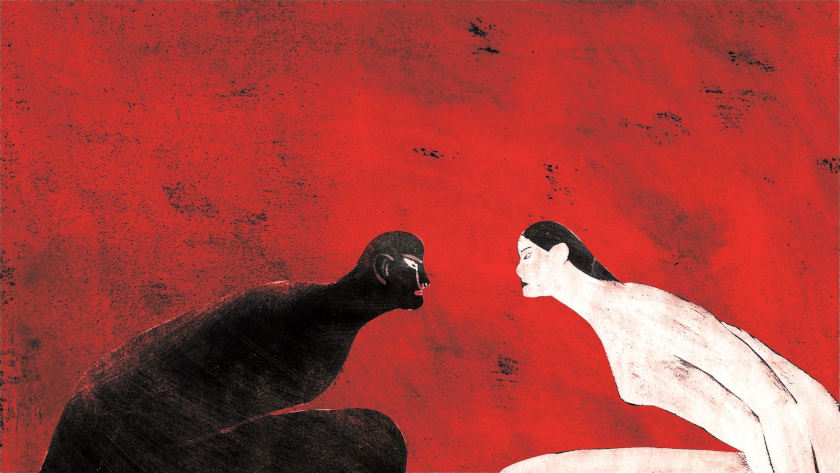
The 1956 John Halas’ remark that animated film, more than any other branch of cinema production, is highly dependent on economic, geographic, and political position of its country of origin, radically validates itself in early Spring 2022. The unprovoked and horrifying Russian Federation’s invasion of Ukraine redefined the experience of participating in the festival activities that opened just two weeks after the war began, and that was held by the time when the bombs were falling on the residential areas, hospitals, theaters, and infrastructure of Kyiv, Mariupol, Kherson, Kharkiv, and numerous other places across whole Ukraine.
The organizers of Tricky Women/Tricky Realities stood up to the demands of the times by offering immediate support to the individual victims of the war, emphasizing and exposing autonomy of Ukrainian animation art, calling for actions and empathy among those in the audience who did not seem to realize a groundbreaking significance of the occurring events, acknowledging and respecting Russian animators’ voices of resistance, carefully proceeding with the festival organization and turning it into a safe space where art still matters. Those of us who came to Vienna heart-broken, devastated, and fearful, could only look at Waltraud Grausgruber (Festival’s directress) and her team with greatest admiration, and however plain it may sound, become inspired by their actions.
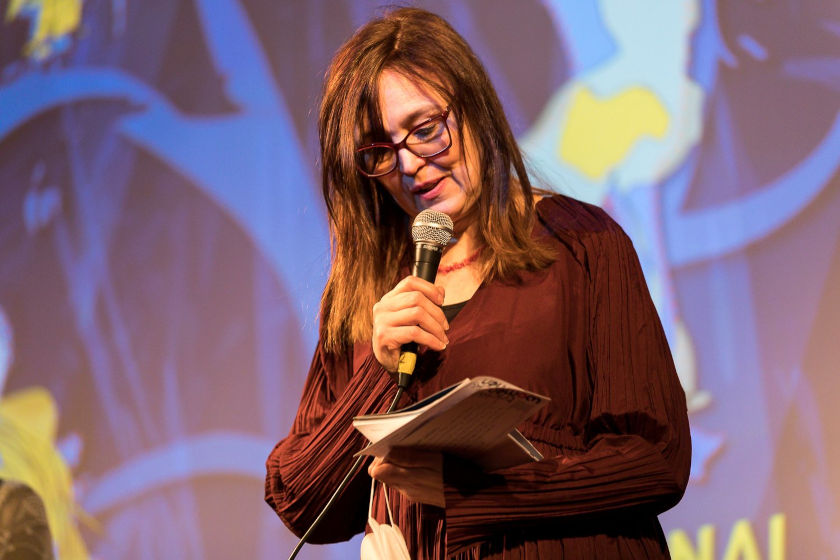
Waltraud Grausgruber: Photo Carolina Frank
It could have not been easy for the Festival to re-focus its attention so thoroughly in the light of the events. For two years Tricky Women/Tricky Realities have been waiting for the festival to return from an “online exile” to a vital live-format event. There were great expectations involved. Héloïse Ferlay (France), Camila Kater (Brazil), and Emilce Avalos (Argentina), three young, creative animators awarded in the recent years with an artist-in-residence special prize (one of the Tricky Women’s “brands”) finally came to Vienna to pursue their artistic goals in the stirring atmosphere of the festival and Museum Quartier area where the residencies are located. Marta Pajek, one of the most emblematic artists of the worldwide contemporary art-house animation who shares tight connections with the Festival, opened her exhibition based on the artwork from the Impossible Figures and Other Stories triptych.
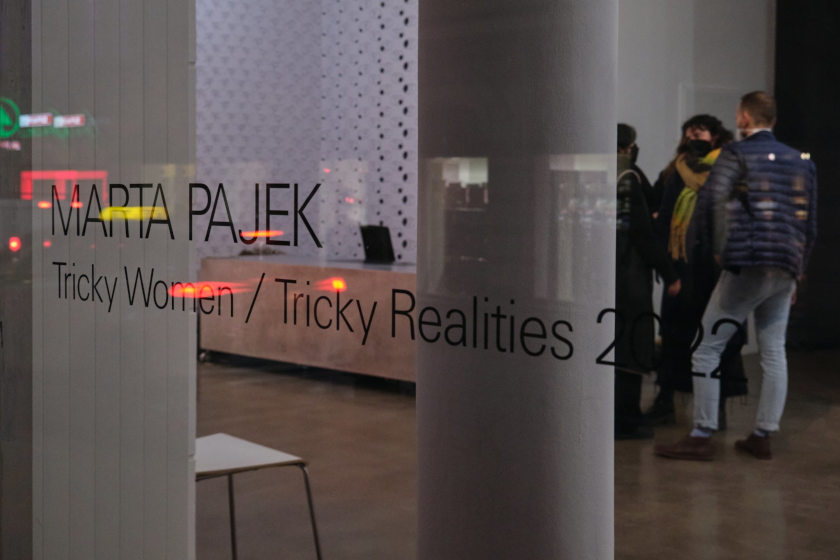
Marta Pajek Exhibition: Photo Carolina Frank
The Maria Lassing Golden Film Reel award worth of 10,000 euro is the newly-established main prize of the Festival, and its sponsor, the Maria Lassing Foundation, invited the festival’s attendees to celebrate achievements of this great artist of Austrian avant-garde animation with a retrospective screening and a special tour around Maria Lessing’s studio. And these are just few of many highlights Tricky Women offered to their viewers on both artistic and professional plane. The war has not cancelled significance of such eventful moments and meetings. But the understanding of how far-reaching, ramified, and inevitably exhausting effects the current situation generates, was nevertheless placed forefront.
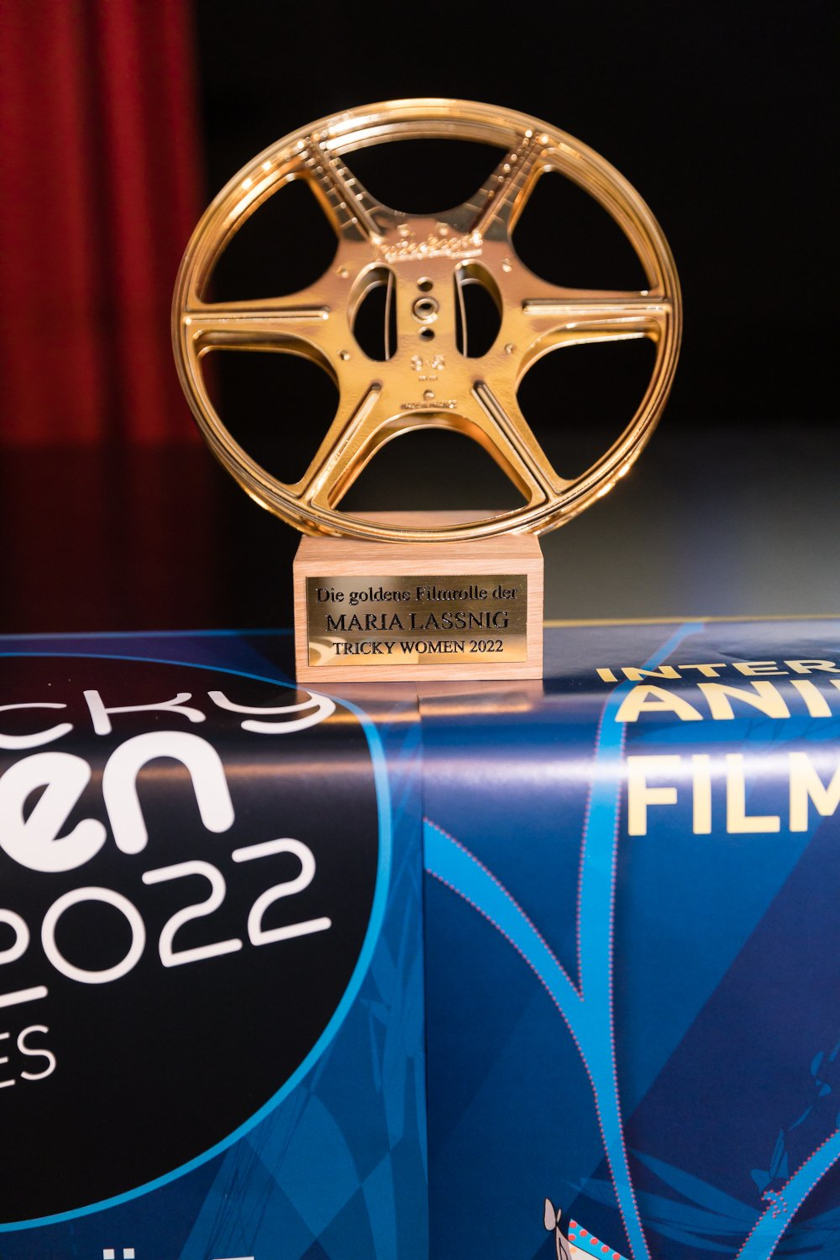
Maria Lessing Golden Film Reel, Photo: Caroline Frank
Just a few days before the opening, the festival team made an indicative decision to commence each screening with a showcase of two montage animated shorts. The first one was a statement from Ukrainian women artists, organized by the Linoleum International Contemporary Animation and Media Art Festival in Kyiv. This unique message displayed excerpts from recent shorts made by Ukrainian animators, and the selected fragments centered on women characters, all of them “as fragile as landmines”. Following was an excerpt from a collective short Not to War (Niet vojne/нет войне) co-created by numerous Russian animators who dared to make this film and sign open letter against the war in the very early days of the invasion. There is no symmetry between the suffering of the victims in Ukraine and dark consequences possibly awaiting Russian animators, and the display of the two clips did not imply any equation. In my understanding such inauguration of the screenings was a clear statement that even in the times of havoc and madness, this Festival will remain a safe and sympathetic community that will work effortlessly for reconciliation between the individuals. Naivety? Utopia? Or rather an affirmation of the only sense-making state of mind that gives hope, even if we all know that as such this approach first falls victim of aggression.
In the course of several pre- and during-festival days, Waltraud Grausgruber provided two residencies in Austria to Ukrainian refugee animators. Anna Dudko, the author of Deep Water (Hlyboka voda/Глибока Вода), stays in Vienna on the invitation of Bildrecht.at and Tricky Women/Tricky Realities.
Ekaterina Gurkalenko, graphic artist and animator, stays in Salzburg on the invitation of Artist in Residence-Programm @ Galerie Schloss Wiespach, Hallein near Salzburg. According to the Operational Data Portal of UNHCR the number of 3,546,668 Ukrainian refugees crossed the borders with European Union and Republic of Moldova until March 20, 2022, predominantly women with children. They will mostly stay in the vicinity of Ukraine in hopes of (possibly) quick return – in Poland, Slovakia, Hungary. Job market and education structures in these countries are not ready for a smooth and fast integration of these women and their children, the relocation to the western countries of EU appears as a slow process impeded with intra-EU tensions, bureaucracy, and still detectable (sic!) Western Europeans’ openness to the disinformation narratives leaking from the Kremlin. One does not need to be a sociologist to understand that under such circumstances, many of the Ukrainian professional women – among them animators – will be forced to drop their careers and provide basic living needs for their families by performing low qualification jobs. However not life-threatening, it is still a serious risk which requires feminist awareness, solidarity, and fast support reactions. Helping two individuals is a drop in the ocean but at the same time, this is another clear statement of Tricky Women – in the limits of their capacities, they will help, support, and empower women animators to remain active and creative, regardless surrounding havoc and madness. Would anybody still call this approach naïve or Utopian? Or is it rather a consistency in building safe and sympathetic community?
In regard to the film programme Tricky Women/Tricky Realities did not fail to take us on a tour de force of the most engaging feminist-spirited animation creativity. The jurors of the International Competition – Sabine Breitwiser (curator, museum expert, scholar), Florance Miailhe (her feature debut, The Crossing/La Traversée, was presented in the programme), and Ana Maria Vallejo (experimental filmmaker, lecturer at the Bauhaus University) – made daring choices which seem to affirm extreme emotions over visual attraction. The main award (above-mentioned 10,000 euro Maria Lessing Golden Film Reel) was picked up by Mahboobeh Kalaee, the author of The Fourth Wall (Divare chaharom) from Iran. Claustrophobic and photosensitive world (reduced to the kitchen interior) of domestic interdependencies, hatred, and toxic love is presented with hybrid means of stop motion, 2D, and live-action, and explained with a disturbing voice-over of a boy who does not really understand occurring situation but who is able to perfectly capture tensions within (for example when introducing the mother’s character – a figure installed on the top of the washing machine – he says: She cries a lot, but cleans well). Raw dynamics and intentional, aesthetic discrepancies make The Fourth Wall a challenging piece of art-house stop motion.
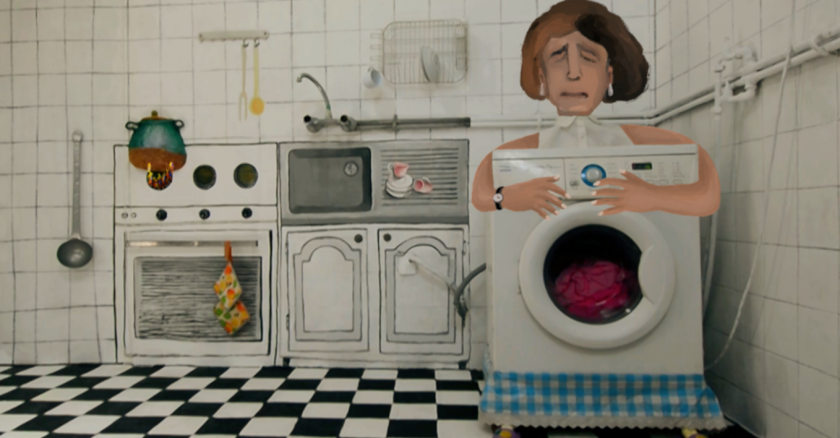
The Fourth Wall, Iran
The 2nd award of the festival worth of 4,000 euro went to Taiwanese animator based in France, Shih-Yen Huang for the film Butterfly Jam (La confiture de papillons). This is also my personal top peak of the Tricky Women/Tricky Realities 2022. This sophisticated, drawn-on-paper animation, similarly to The Fourth Wall, focuses on the household interior in order to map the ambiguous relationship between father and daughter. If Kalaee’s film “incarcerated” the viewer inside one set, Huang’s art-work delicately surfs throughout various sceneries, nevertheless always arriving at the same mental spot – of essential misunderstandings and disability to love each other unconditionally. The father is nowhere to be seen but his indifference does not stand for absence, it is actually an acting force affecting lives of the others with no qualms or restrain. Visuals explore motifs of emptiness within objects and spaces once filled with life, while the narration centers on the various animals formerly present in the father’s household, doomed to die or leave, just as all other family’s members.
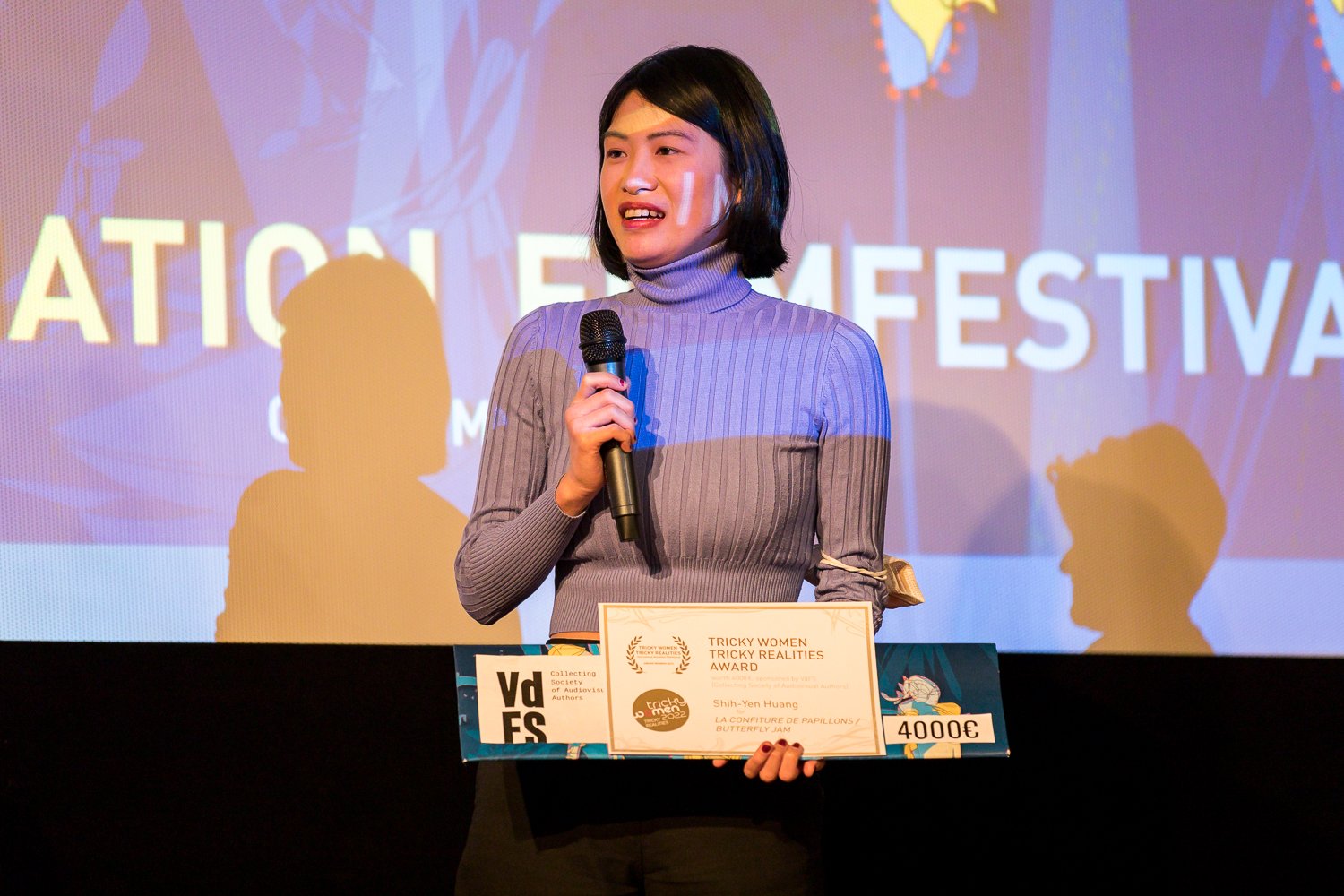
Shih Yen Huang. Photo: Carolina Frank
Further awarded films in the International Competition include Skin to Skin (Azaletik azalera, Spain, dir. Mel Arranz, artist-in-residence award), an extremely sensual close-up on experiencing skin contact through images and sounds; Fledge (Israel, dir. Hani Dombe, Tom Kouris), a coming-of-age story of an emigrant in the process of accepting her complex identity; Meneath: The Hidden Island of Ethics (Canada, dir. Terril Calder), a raw stop motion take on the horrific treatment of the Indigenous Canadian people; Two Sisters (France, dir. Anna Budanova), a metaphoric love triangle inspired by buto dance theatre.
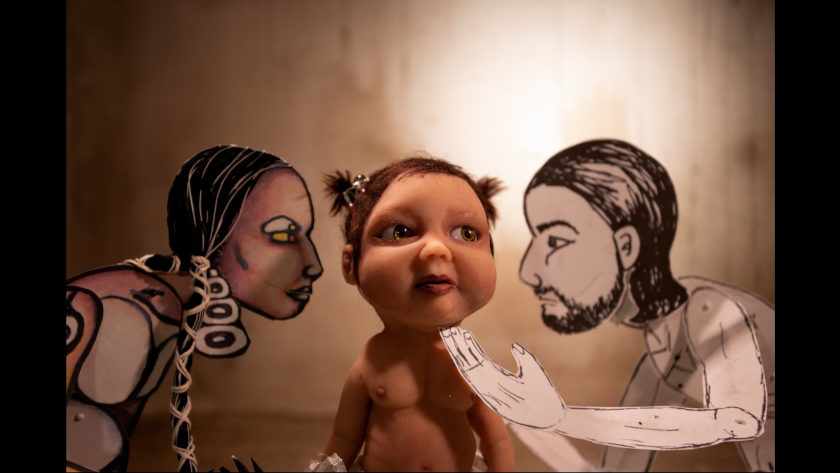
Meneath: The Hidden Island of Ethics
Špela Čadež’s Steakhouse (Slovenia) received an Audience Award proving – first of all – that the Tricky Women/Tricky Realities’ audience is always ready to reflect on the most difficult subjects, but also this tells us that the sincere focus on psychological domestic violence that has not been so openly and sincerely discussed in animation before, brings out strong reactions, builds understanding towards nature of this kind of violence, and thus such films may empower the victims of abuse to make a necessary change.
In the Up&Coming Competition, evaluated by Bára Anna Stejskalová (Czech Republic), Eni Brandner (Austria), and Delia Hess (Switzerland), the awards went to Girl in the Water (Taiwan, dir. Shi Rou Huang), 3 Generations (Poland, dir. Paulina Ziółkowska), and Reduction (Hungary, dir. Réka Anna Szakály). Intense film programming consisted also of various retrospective screenings built around themes derived from the main sectors of feminist reflection. As each year the special section “Work Affairs” stood out in examining individual and sociological takes on women-identifying persons in “working environment” defined in the widest terms: from inequalities of professional, capitalist job market, through pursuit for personal passions and aspirations, to the darkest corridors of women’s submission to slavery. Regrettably, I have come to Vienna too late to have an opportunity of visiting Maria Lessing’s studio and see her films on the big screen of Kino Metro. But that’s a sad beauty of a festival happening live.
The uniqueness of Tricky Women/Tricky Realities relies on the fact that all the attendees accept sincerity as consensus, this is a method of interactions at the festival. Opening-up and inviting strangers to explore your intimate thoughts and feelings is not a requirement but it happens more often than not that you find yourself involved in perfectly honest conversations where sharing is not followed by judgments. A special seminar session (the so-called Best Practice talks) is one of the opportunities when such approach in communication about film art becomes center-stage. One of the most moving lectures I have ever heard in the context of animation festivals was delivered on Tricky Women 2022 by Yuliya Lanina who spoke of the subjects of trauma, silence, and repetition in her film Gefilte Fish (USA).
The film departs from the memories of the massacre in Babi Yar (a ravine in Kyiv) where on September 29-30, 1941, the Nazis murdered 33,771 Jews; the narrative further on traces the monstrous and long-lasting effects of this horrendous trauma being passed onto next generation through rape and continuous silencing of the victim. While delivering her speech, Yuliya Lanina emanated with power of experienced pain and healing, and understanding that the mechanisms of horror and repression repeat continuously. 10 days earlier Putin’s military bombed a site nearby memorial in Babi Yar. As wide groups of nations and societies entangled in geopolitics and propaganda formulated by blood-thirsty dictators, we stand no chances to escape the tragedy of repetition. Only within the communities of sympathetic individuals, we might find rescue.
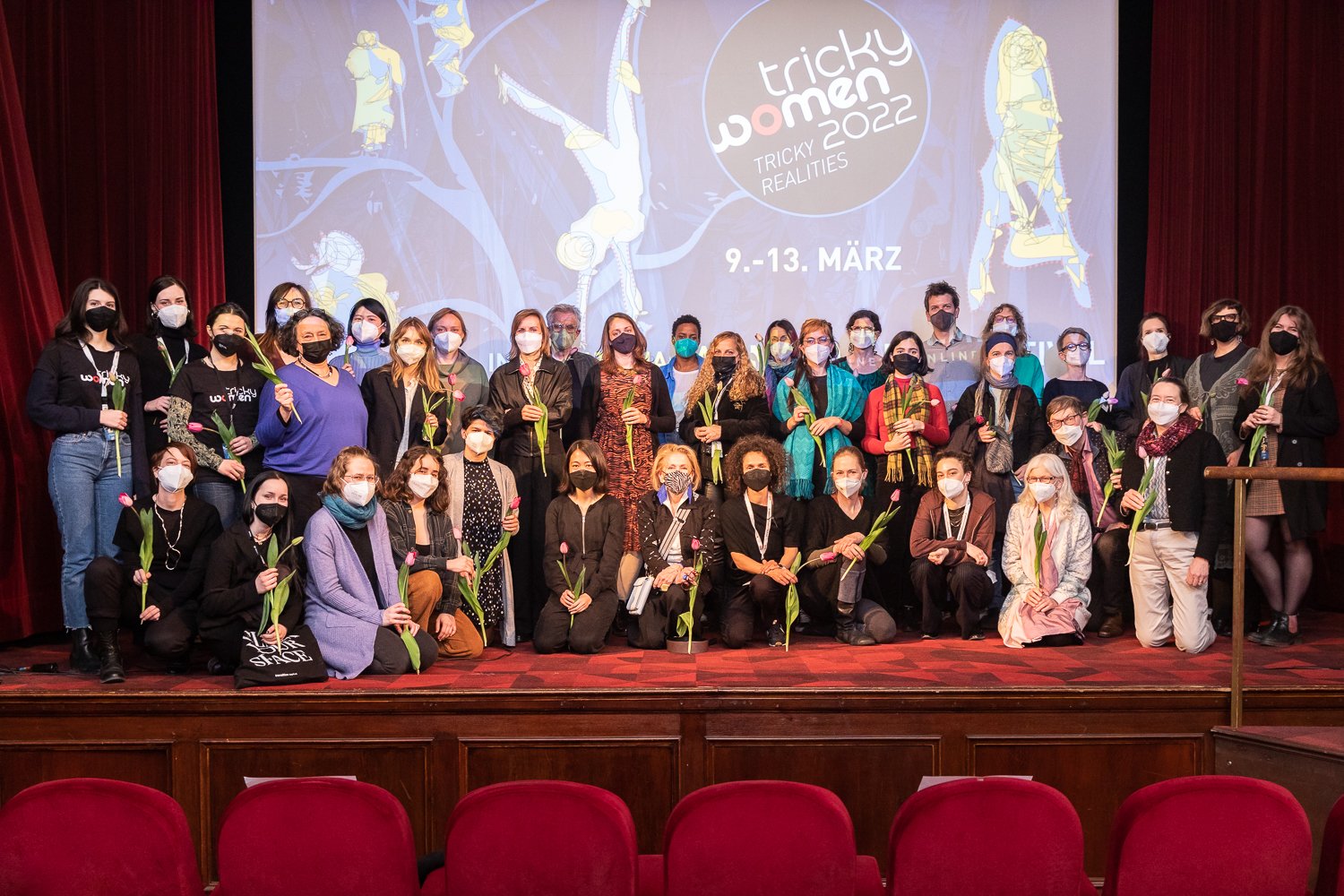
Tricky Women 2022, Photo: Caroline Frank
Contributed by: Olga Bobrowska




